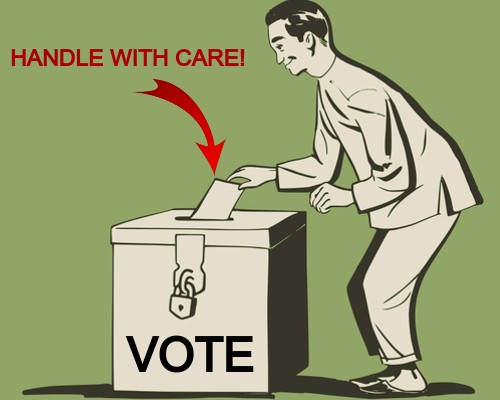
Confession: I’m not much of a gardener.
I try, but I’m only able to get a few things — cucumbers, green onions, tomatoes, etc. — to grow reliably to ripeness so that they end up on my family’s menu. A lot of the stuff I’ve tried either dies off before it’s ready even if I treat the soil the way my sources recommend, or gets eaten by bugs despite my best efforts to protect it with “safe” pesticides.
When I say I try, well, not every year. But I’m definitely trying THIS year. I started tilling this morning and have seeds arriving soon. And you should too.
Why? Because over the next few months, two things will almost certainly make food more expensive and less available at your local grocery store.
Thing one: Donald Trump’s cockamamie tariff schemes mean that imported food is about to get both scarcer and more expensive while domestically produced food will likewise go up in price because it can (that’s what happens when producers don’t have to compete for your business).
Thing two: Donald Trump’s cockamamie immigrant deportation schemes mean that farmers are going to have a harder time getting this year’s harvest in. Nearly three of four farm workers in America are immigrants, many of them “undocumented” and probably all of them afraid of getting caught up in ICE’s scattershot “abduct, cage, deport” dragnet. Some will “self-deport.” Others will seek work in fields (pun intended) less likely to attract government attention.
Don’t just put in a garden. Stock up on canned food. If you can, get and keep a chicken or three. Consider buying a “whole cow” package from your local butcher shop (and, if need be, a chest freezer to store it in).
I try my best to avoid predictions of imminent catastrophe, and I still hold out hope that we can get through all this nonsense with nothing more than a mild to moderate recession before cooler heads prevail.
But it’s not a “no pain, no gain” situation. The hammer isn’t just cocked on the upcoming craziness; the gun has been fired. It’s a “pain, no gain” situation, and all we can do is act preemptively to minimize the pain. How badly you’re hurt when the bullets hit your household depends on your ability to dodge.
Hopefully, you’ve already started attending to your longer-term food requirements. If not, time to get moving.
Thomas L. Knapp (X: @thomaslknapp | Bluesky: @knappster.bsky.social | Mastodon: @knappster) is director and senior news analyst at the William Lloyd Garrison Center for Libertarian Advocacy Journalism (thegarrisoncenter.org). He lives and works in north central Florida.
PUBLICATION/CITATION HISTORY


